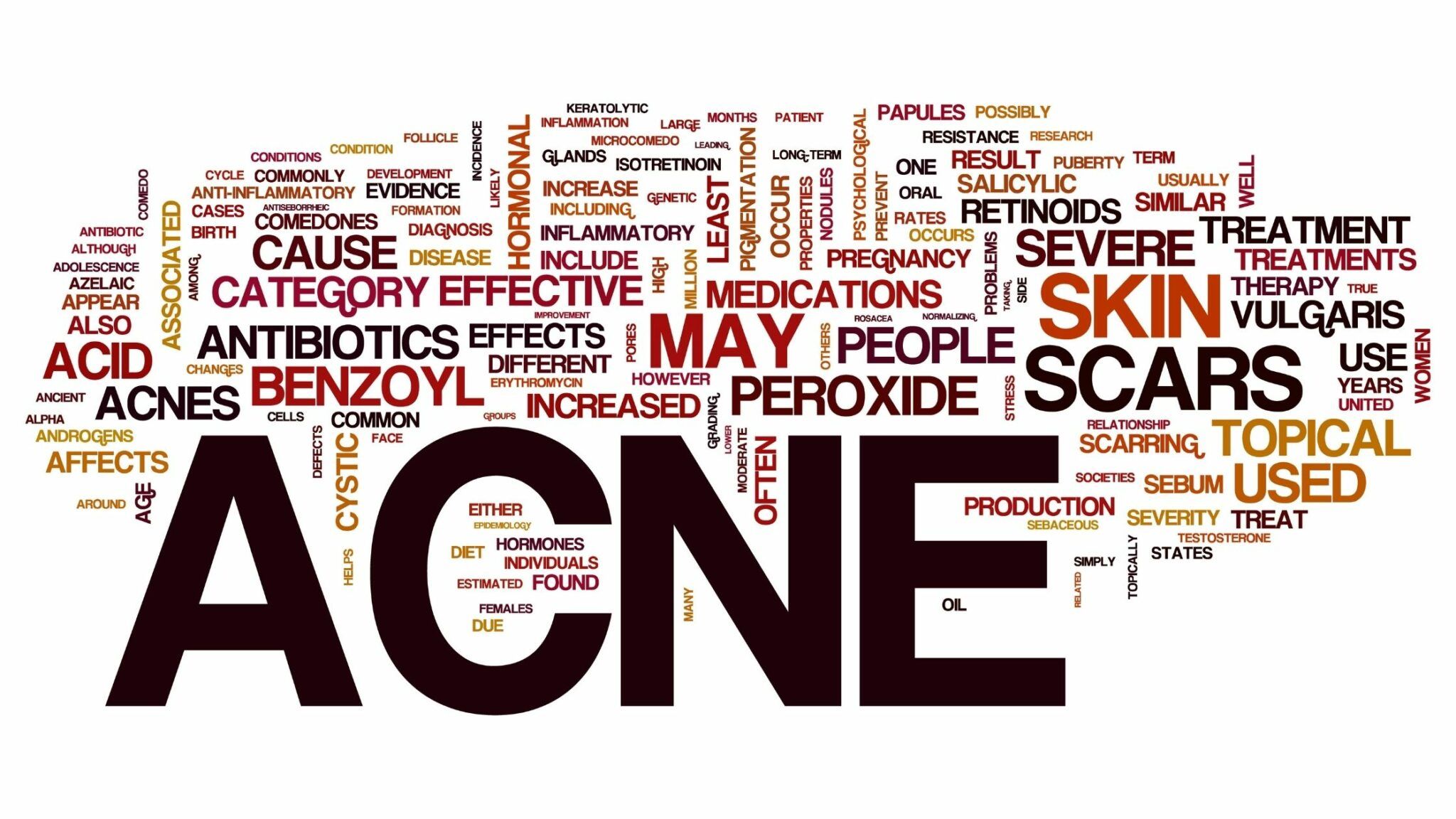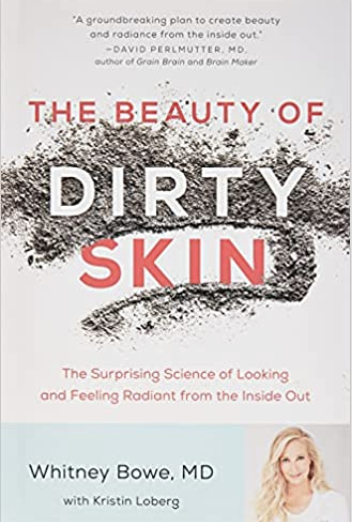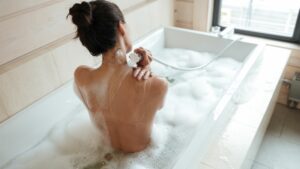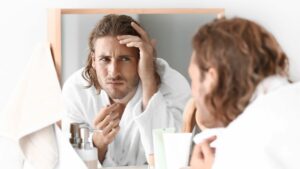Body Acne – Typical In Winter!

Especially in winter, acne on the body is in high season. It really blossoms. The blemishes appear especially on the décolleté, upper arms, back and buttocks. But they are far more than just a visual problem. On the body, the pimples really hurt when clothing rubs against them.
Why do we always talk about “blossom” and “bloom” in connection with acne, although the appearance has nothing at all to do with the beauty of a flower? Experts still argue about the etymology of the term acne. It could be derived from the Greek word “akmé”. On the one hand it means “point, sharpness, cutting edge”, on the other hand it also means “blossom, maturity, climax”. In any case, it refers to a skin rash that is based on excessive sebum production and a cornification disorder.
Causes for acne on the body
“The causes of acne on the body are similar to those of facial acne,” explains Andrew Alexis, M.D., Master of Sciences Public Health at Weill Cornell College in New York. These include inflammatory processes in the skin, increased oil production, sebum and dead skin cells clogging hair follicles. However, the main culprit is a specific acne bacterium called Cutibacterium.
Body acne is mainly triggered by sweat and oil. Tight-fitting clothing exacerbates the problem, which is why many athletes and sportsmen suffer from it. In men, shoulders, back, chest and buttocks are also mostly affected by the festering pustules. In women, body acne often occurs during hormonal changes, such as pregnancy or menopause, because the sebaceous glands then work more actively.
Why body acne, also known as truncal acne, predominantly appears in the described zones is due to the sebaceous glands, which are larger in these areas. Autumn and winter are particularly predestined for body acne, because then several external factors are added: As outdoor temperatures drop, we heat up more and wear sweaters, scarves and warm jackets. This makes the skin drier and more sensitive. It literally gets no more air, and pimples sprout. Therefore, especially in the acne-prone areas, do not wear tight-fitting clothing and avoid fabrics that rub. The skin must be able to breathe.
Stress makes body acne worse
Diet can affect acne on the body, but it does not have to. Nevertheless clinical studies have shown that avoiding dairy products and foods with a high glycemic index (white flour, sugar, corn, potatoes) can reduce blemishes.
Dr. Whitney Bowe, New York dermatologist and author of the book “The Beauty of Dirty Skin,” sees a close connection between the gut, brain and skin. “Stress can absolutely exacerbate body acne.“ Bowe is also an advocate of getting enough sleep because she says, “insomnia can lead to elevated levels of cortisol. This stress hormone inhibits the body’s production of antibiotics that, among other things, protect the skin from pimples and rashes.”
A pioneer in the field of gut-brain-skin connection research, Bowe’s book describes the spectrum of skin disorders rooted in the gut. They range from persistent acne and rosacea to psoriasis, eczema and premature wrinkling. The dermatologist firmly believes that neither lasers or scalpels nor creams guarantee the permanently healthy, glowing skin we all desire. According to Dr. Bowe, the solution lies in the microbiome, where trillions of microbes “communicate” with the skin via the brain. That’s why she also sees a close connection between sleep, stress, diet, gastrointestinal health and skin condition.

The Surprising Science of Looking and Feeling Radiant from the Inside Out
Dr. Whitney Bowe, one of the nation’s top dermatologists, is a pioneer of the gut-brain-skin connection. In The Beauty of Dirty Skin * she combines her clinical expertise, insights into the latest scientific developments, and profound discoveries in natural medicine into a powerful prescription for skin health. Hardcover, 288 pages, 34,35 Euro.
Check your lifestyle
According to Dr. Alexis, body acne is estimated to occur in more than half of facial acne patients. Showering or bathing with gentle, pH-neutral cleansers is the order of the day, especially after a sweaty workout. It is helpful to use a shower gel with ingredients such as bacteria-killing benzoyl peroxide. Exfoliating with glycolic or salicylic acid reduces the appearance of dark spots.
However, one should not overdo it with the cleaning and also not use too aggressive products. These, in turn, disrupt the skin microbiome and can cause irritation and inflammation, which only exacerbate acne on the body. Dr. Bowe, “Many people mistakenly believe that their acne is a sign that they are ‘dirty’ or unhygienic. They then try to rub or scrub off the dirt to thoroughly ‘clean’ the skin. Unfortunately, in doing so, they do more harm than good.”
Strengthening the skin barrier
More can be achieved by ensuring an intact skin barrier and taking care of it with appropriate serums and lotions. Bowe recommends moisturizers with prebiotics and ceramides that rebalance the microbiome. It’s better to avoid rich, oil-based body care products, as they will only further irritate. Pimples and blackheads are caused not only by comedogenic substances such as kerosenes, emulsifiers, silicones and solvents, but also by such seemingly harmless substances as coconut oil, cocoa butter or olive oil.
Hair shampoo and conditioner can also cause pimple alarm. Even if we don’t put them directly on the skin, residues can end up on the skin, especially with long hair. The hair sometimes lies on the shoulders, back and décolleté all day. Little air gets to the skin, and when sweat and residues of styling products then combine, annoying pimples are the result. Detergents can also cause skin irritation. In this case, switch to a sensitive product, such as those recommended for babies. Towels should be changed frequently. Especially when they are damp, germs and bacteria quickly accumulate in them, which can contaminate the skin pores when they are used again.
As a targeted spot treatment or for masks, ingredients such as sulfur, salicylic acid, zinc PCA, niacinamide and a 1% salicylic acid have proven effective. Such intensive active ingredients should only be used on pus-filled pimples, as they severely dry out the skin. Basically, on the body as well as on the face, squeezing or popping are the biggest sins for pimples. Ugly scars can remain.
* This is an affiliated link. You don’t pay more. It is just a little thank you for our team.

CultureAndCream Author from Munich
To travel during my profession as a beauty journalist was never enough for my. Also my six month on a world trip didn’t do it. It always attracts me to other cities, foreign countries, on roadtrips and places I don’t know yet. But I am not only interested in “culture” and “cream”, I am also fascinated by people who have stories to tell . Such unique experiences I want to share with you.


